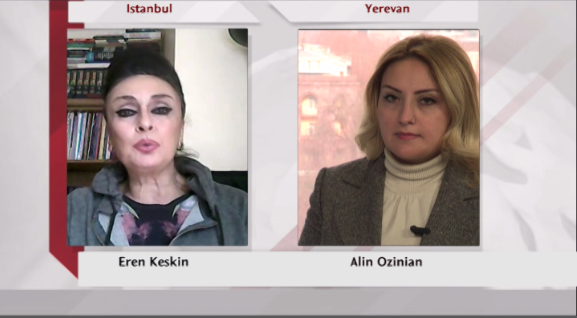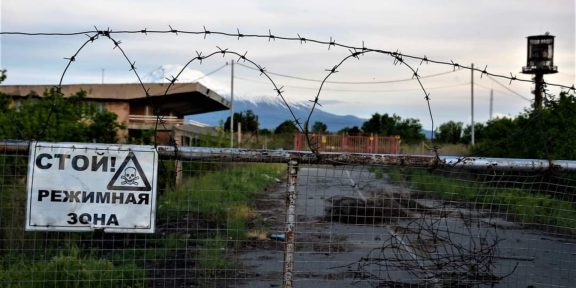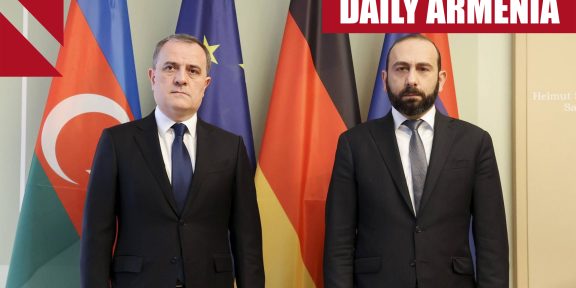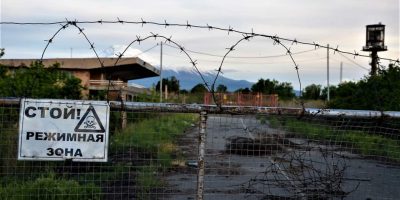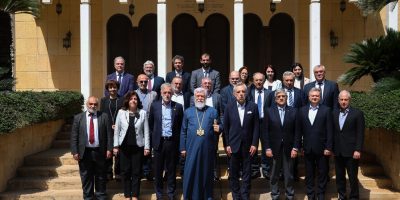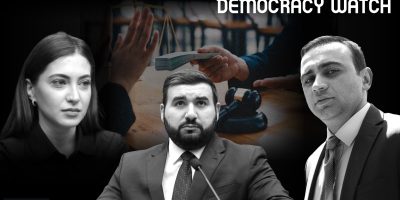 One of the most prominent human rights defenders of Turkey Eren Keskin was sentenced to 10 months in prison by a Turkish court according to the infamous Article 301 of the Turkish Penal Code.
One of the most prominent human rights defenders of Turkey Eren Keskin was sentenced to 10 months in prison by a Turkish court according to the infamous Article 301 of the Turkish Penal Code.
In 2005, following the murder of a 12-year-old boy and his father, Eren Keskin said that the state that is able to kill a 12-year-old boy has a violent mindset and that Turkey must answer for this. After these words, she faced a court case against her according to Article 301 of the Turkish Penal Code, which punishes those who insult the Turkish Republic. Such accusations were leveled against various famous intellectuals in Turkey, such as Hrant Dink, Orhan Pamuk, Elif Safak, etc… Many people believe that Dink became the target of the ultra-nationalists after these accusations. The court handed down a 10 month prison sentence for Eren Keskin, refusing all alternatives of postponing the sentence or replace it with a fine. If the supreme court approves the verdict, then Keskin will be imprisoned.
Eren Keskin is a member and the former president of the Human Rights Association of Istanbul and the lawyer of the Istanbul Armenians who were victims of the attacks in the Samatya district of Istanbul. The organization that she is a member of recognizes the Armenian Genocide and organizes commemoration events on April 24.
CivilNet’s Aline Ozinian spoke with Keskin about this decision and the new developments.
2005, in one of your speeches in Mardin you said that the state has such a violent mindset that it is able to kill a twelve-year-old boy. You also said that Turkey has a dirty history. And after nearly 10 years, a 10 month prison sentence according to the article 301 of the Turkish Penal Code was handed down for that reason. Why do you think that Article 301, after 10 years has come up again and why did they sentence you?
As you have said, I made that speech in 2005, after twelve-year-old Ugur Kaymaz was killed with his father in Kurdistan. I was invited to a conference in Cerkezkoy and I delivered my speech there. I spoke about the murder of this twelve-year-old buy and I reiterated that this is not today’s violence. The Republic of Turkey was founded on the basis of a huge crime. I repeat this in every speech. We can evaluate our present starting from the Armenian Genocide in 1915 and conclude that the state has a dirty history. As long as they are not facing the history, they keep committing new crimes. I did say all of this, indeed and they initiated a court case against me. There has been many cases against me before. In this case also I had a penalty at first, then I took it to the supreme court. While my case was at the supreme court, an amendment was made to the Article 301 to appease the EU, and a permission by the minister of justice was set as a condition to start a case against someone with this article. Thus, my case went to the ministry of justice. At that time, the minister of justice was Sadullah Ergin, and he gave his approval to start a court case against me. Therefore, the court case was opened against me and now, 10 years later, I received this sentence. Generally, they are replacing short sentences with fines and penalties, or they are postponing the decision to a later date. But in this case, the court has justified its decision stating that the suspect has a criminal record and criminal tendencies. Of course, this is also a matter of question. I am a human rights defender and the court insists that I have criminal record. Now I have appealed this decision and it has gone to the supreme court.
Since you spoke about having a criminal record, I want to ask if the “crime of free thinking” in Turkey is a serious criminal record?
I think this is the criminal record of the state. The state doesn’t want to talk about its own crimes, that is why new criminal records are being added to its old ones. I was also imprisoned in 1995. The things that we were saying at that time, is being said by everyone today. Therefore, we are right. This state has red lines and the Armenian Genocide is the first one among them, besides the Kurdish problem, the military occupation in Cyprus, anti-democratic secularism, etc.. The state doesn’t want anyone to say something outside the official ideology. There is no change in these issues. There is no difference even among Islamists and Kemalists about these issues. We have seen the most recent example of this in the Dogu Perincek trials, how these sides were united. Thus, this a very deep rooted point of view in Turkish society. And because of this point of view, we are being regarded as having criminal records. But from a more humane point of view, I think the one who has a criminal record is the state.
Apart from the Armenian Genocide of 1915, you were also involved, among other human rights issues, in the case of the attacks against and killings of Armenian women in the Samatya district of Istanbul. Do you think that they are trying to intimidate you?
I think they are definitely trying to intimidate me, because the Republic of Turkey doesn’t want to question its past fearing that huge crimes would be uncovered. They are aware that they cannot prevent this. As the popular saying goes, they are looking for a place to hide. However, there are still people who want to discuss this. We, as human rights defenders think in the following way: They always tell us that this is not the right time for it. Sometimes even people on our side say the same thing. They say that people are not ready, the state is not ready. We do not accept this. If there is a problem, then we should speak about it the moment we feel it. We are trying to do only this. We know what the crimes of the state are, we are voicing them and we will continue to do so. This how I look at the issue.
When you gave this speech, it was during the initial years of the AK party. Ten years have passed since then. Where do you think Turkey is now in terms of freedom of thought and democratization?
After a long struggle, after pressures by the European Union and international obligations, social media developments have all resulted in some changes in Turkey. But these changes are very few compared to the price that is being paid for it. It would be a lie if we say it hasn’t changed at all. We couldn’t speak about the Armenian Genocide at all ten years ago. Now we are more able to speak about it freely. The same thing applies also to the Kurdish issue. But these discussions are happening very late and with a very high price, that I think these are not enough. However, I am not only blaming the state, because the state is already criminal and dirty. But because of the totalitarianism of the state there is a very deep rooted official ideology. Whether it is right wing or left, all sections of the society are fed on “Ittihad and Terakki” thoughts. There are very few people who go beyond these. This is why everyone has to question himself, even among those who defend human rights. Leftists, socialists, revolutionaries, liberals and everyone should question themselves. How much do we demand the state to change? I think what we lack the most today in Turkey is this demand. There is no demand, or the demand is too little, that is why the state is resisting to change.
In fact, you have somehow answered my next question. As we know, the state has a punishment mechanism, especially for those who go against the official ideology or oppose it very seriously. How would they abandon these practices? Would it be done only by demanding?
Of course, demanding would help a lot. But international relations would also have a big effect. For example, when the European Court of Human Rights penalizes Turkey, it never does so according to Article 14, which is about discrimination. Last week was Perincek’s case, where we participated as an intervening party; the ECHR looked at the case of genocide denial as a case of freedom of thought and speech. But this point of view is a threat against the victims of this crime and it is not aware that it is empowering the racism of the perpetrators. Countries of the EU can impose democratic pressure on Turkey, but they are not doing it. So it is not only a demand from within the country. Of course, this demand is very important, but external pressure is also important. This would be very difficult. The Republic of Turkey has a very intractable structure and we eventually need to start to question it from somewhere. This has started very slowly, but it has to be increasingly intensified.
Thank you, Eren Keskin for giving us the time and we wish you much success in your work.
Watch the interview here.




